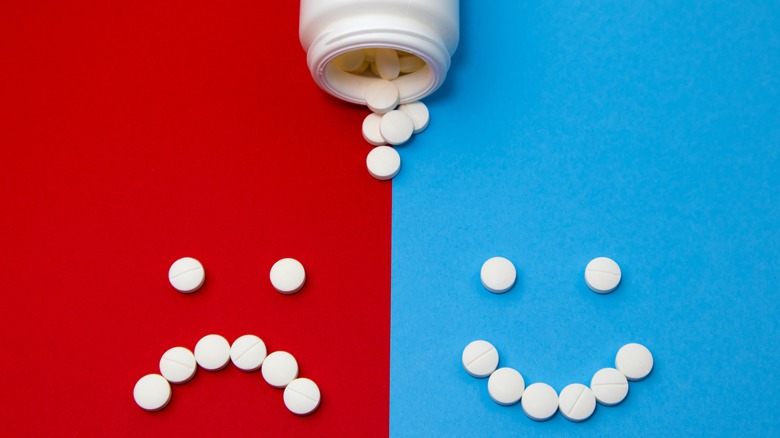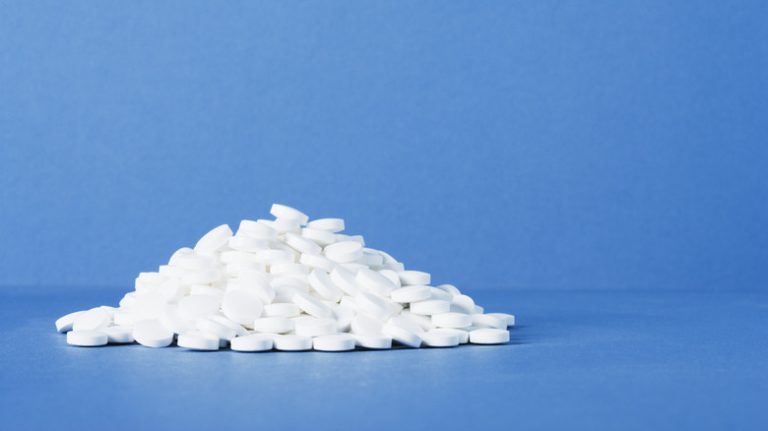It’s a sad truth: The things we don’t understand we tend to judge most harshly. A look at human history will undoubtedly show you just how dangerous this tendency can be. And yet, “otherness” continues to be shrouded in mystery and fear — which, all too often, leads to stigma and contempt. Depression — despite its prevalence — is one of those widely misunderstood things.
In the United States, nearly 10% of adults are diagnosed with depression, while a whopping 20% of adolescents and teens are affected, according to a 2024 study published in the American Journal of Preventive Medicine. And while the incidence of depression continues to grow, the number of people receiving treatment has remained markedly unchanged. Perhaps the lack of understanding surrounding depression is partially to blame for this discrepancy, as stigma so often appears on the list of reasons people with the illness refuse to seek treatment (per American Psychiatry Association).
Eradicating the stigma that plagues the way we think and speak about depression begins with education. Dr. Jennifer Guttman, a cognitive-behavioral clinical psychologist with 30 years of experience and the developer of the motivational brand Sustainable Life Satisfaction, is here to do just that. In an exclusive interview with Health Digest, Dr. Guttman dispels some of the most pervasive myths about depression and sets the record straight once and for all.
Common misconceptions about depression

“What do you have to be sad about?” “Why don’t you just look at the good things you’ve got going on?” Anyone suffering with depression has likely heard some iteration of this at one point or another. But Dr. Guttman is very clear when she says that people with depression can’t make themselves happier by simply seeing the sunny side. “This is a myth because positive thinking alone cannot combat depression,” she says. “Depression is a medical condition. It can be set off by a biological condition and/or a triggering situation. Depression requires a clinical intervention of some kind whether it’s therapy, medication, or a combination of the two to reduce the symptoms.”
And while it’s true that some people might experience depression as a reaction to a bad situation, the idea that everyone needs a “reason” to be depressed is another common myth. Dr. Guttman explains that “Although people can be sad after a triggering event, people can experience clinical depression when there is no catalyst at all. Biochemical depression is caused by suboptimal levels of certain neurotransmitters in your brain that are responsible for mood management.”
Let’s talk antidepressants

Antidepressants are a common treatment for clinical depression. However, the stigma surrounding them is so ubiquitous that even people who should be taking antidepressants believe some of the misinformed rhetoric about them. “People think that antidepressants will change their personality or make them less creative,” Dr. Guttman says, explaining one of the most common concerns people have when the topic of medication comes up.
However, she points out that, “The role of antidepressants is only to allow for the optimal amounts of certain neurotransmitters to flow through your brain. In fact, antidepressants should make you feel more like yourself than you do otherwise.” And while antidepressants can be lifesaving, finding the one that works for you can be a trying game of trial and error. More often than not, people wind up trying several different medications before they find one that works for them (per Sunnybrook). But Dr. Guttman reminds us, “If you’re not feeling better, then the antidepressant you’re taking is not the correct one for you.”
What to do if you think you may have depression

Chaay_Tee/Shutterstock
If you have reason to believe you may have depression, it’s important to remember that you are not alone and — despite how you may be feeling — you are not hopelessly stuck. However, you will need to be an active participant in getting back to yourself. Dr. Guttman says that confiding in your support system and letting them know how you’re feeling is a great start. However, it’s not enough. Scheduling an appointment with a therapist who can evaluate you is paramount.
“Make sure you are aware of the signs of clinical depression,” she adds, instructing that you pay close attention to changes in your eating and sleeping patterns — as well as racing thoughts, ideations of self-harm, and feelings of hopelessness or worthlessness. All of these are symptoms. Limiting your alcohol intake is also important if you believe you may have depression, as it can exacerbate the symptoms. Dr. Guttman also stresses the importance of getting enough sleep and eating healthy meals with mindfulness, as these are key elements on the road to recovery.



